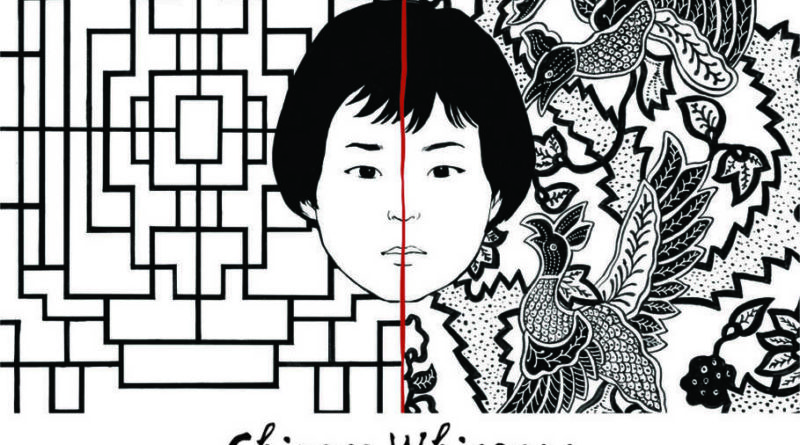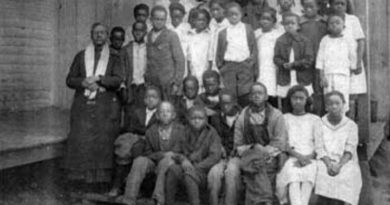ASEAN ARTS & CULTURE, COMMUNITY: JAKARTA – ‘Chinese Whispers’: Graphic Novel Tells Untold Stories of Mass Rapes and Murders of Chinese-Indonesian Women in May 1998 Riot
(Photo courtesy of Chinese Whispers)
.
.
Jakarta. Indonesian artist Rani Pramesti was only 12-years old when months of political turmoil and street demonstrations in Jakarta ended up in the May 1998 riot. And yet, she remembers clearly the chaotic and violent scenes that happened before her eyes that day as rioters nearly reached her family home in South Jakarta.
“I remember climbing up to the water tower because the Matahari mall [close to our house] was burnt. I saw columns of smoke. It was so close,” she recalled.
Rani, an Indonesian of Chinese descent, and her brother were flown by their parents to Perth, Australia, to escape the violence and ended up making the land down under their new home.
An investigation by a fact-finding commission (TGPF) found that at least 52 Chinese-Indonesian women became victims of gang rapes during the riot, but none of the cases ever went to trial.
The tragedy inspired Rani, now a stage actor and playwright in Melbourne, to write a graphic novel called “Chinese Whispers,” launched at Atma Jaya University in Jakarta on Thursday (03/05).
Before the riots happened, Rani said at the launch, she never experienced discrimination for being a Chinese-Indonesian.
Her grandmother was a full-blooded Chinese woman who married a Javanese man, and Rani’s mother spoke Javanese and was raised a Muslim.
However, all these cultural complexities are forgotten when people started seeing her as a “Chinese-Indonesian.”
“I don’t agree with the term Chinese-Indonesian because it’s too simple,” Rani said.
“Because I’m Chinese, I’m considered a minority, but I don’t like to be called a minority because this entire country is made up of minorities. The only majority would be the Javanese – politically, economically, population wise. But I have Javanese blood in me. How come they don’t consider me a majority?” she said.
“Actually, ‘Chinese Whispers’ came out of the loneliness [I feel] wanting to meet people like me,” Rani said.
Many may interpret the title of Rani’s graphic novel as referring to the children’s game – Chinese Whispers is the British term for “telephone” in the US – where a message is whispered to many people, becoming garbled along the way.
Rani said the title was also inspired by the way Chinese-Indonesian women in Australia, who had moved to the country to escape the May 1998 riot, talk about what happened back then.
“When they talked about May 1998, their voices dropped to a whisper. [My book is] about how there are these stories that for some reason still need to be told in whispers,” she said.
“I’m trained in the theatre and spend a lot of time trying to be aware of my own body. Our body is our instrument. So if physiologically, subconsciously someone starts whispering about a particular event, what does that say about that event?” Rani said.
Chinese Whispers started out in 2014 as an art installation in Melbourne, a labyrinth filled with sound recordings and the voice of a live actor that Rani built for people to enter and experience for 40 minutes.
The piece won the “Best Live Art” and “Innovation in Culturally Diverse Practice” awards at the 2014 Melbourne Fringe Festival.
The original Chinese Whispers was difficult to recreate because of the scale. It required a stage manager, a lighting designer, a set builder, a lot of logistics and live performers.
So to make things easier, Rani decided to recreate the installation into a graphic novel, which is currently only available digitally.
Rani is adamant the tragedy that happened to Chinese-Indonesian women during the May 1998 riot – the mass rapes and killings – has to be remembered.
“Well firstly, I should just say, it’s not in the past. I know we’re talking about an event 20 years ago, but the dynamics are still present and very relevant today. How are we supposed to know what we want for our future if we don’t know our past?” she said.
Rani says telling her story is part of a healing process. She believes in order to solve a problem, you must first acknowledge what has happened in the past.
“May 1998 is in our bodies, whether we’re conscious of it or not,” she said.
Rani wants as many young Indonesians as possible to read Chinese Whispers.
“The younger generation, when they learn about this [tragedy], hopefully, they can help ensure it doesn’t happen again. That’s my ultimate hope. But my job now is to tell this story with as much integrity as I could. Where it goes, where people take it, I can’t control it,” Rani said.
A full version of the graphic novel is available to view for free at www.thechinesewhispers.com / By : Joy Muchtar | on 5:46 PM May 14, 2018









